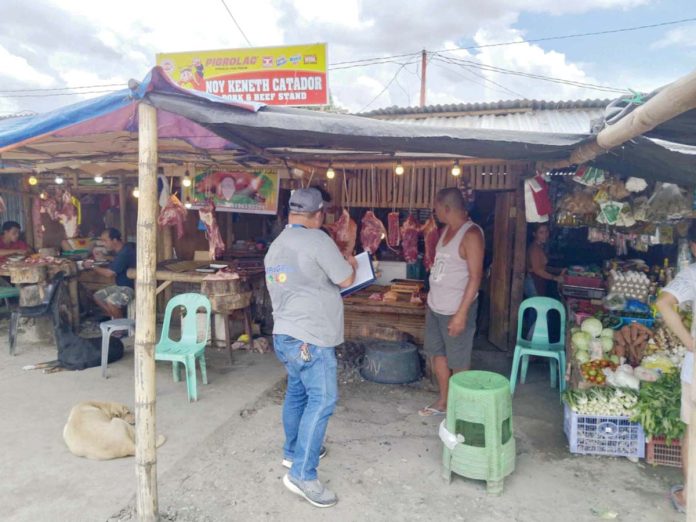
ILOILO – With growing concerns over unregulated meat sales, the Iloilo Provincial Government has ramped up its meat inspection campaign to ensure that pork, beef, carabeef, and poultry sold across the province are clean, safe, and fit for human consumption.
Through the Provincial Veterinary Office (PVO), intensified inspections are now underway in public markets, highway stalls, and even supermarkets, targeting vendors who fail to comply with safety standards and documentary requirements.
According to Godofredo Jinon Jr., Meat Inspector III of the PVO, vendors must secure a Meat Inspection Certificate (MIC) for locally sourced meat, and a Certificate of Veterinary Inspection (CVI) for imported products.
These documents are issued by meat inspectors under the jurisdiction of each local government unit (LGU).
For locally slaughtered pigs processed in LGU-designated slaughterhouses, the MIC is issued only if the animal is found healthy before slaughter and the resulting meat passes quality checks. Vendors are required to secure a new MIC for every batch of pork they slaughter and sell.
The intensified campaign was prompted by observations that many vendors were still selling meat without the proper certifications.
“We’ve observed that many vendors are still not complying, possibly because they were not inspected before. Hopefully, with more towns already visited and inspected, others will be more aware,” Jinon told Panay News.
He cited Barangay Balabag in Dumangas town as an example, where several meat vendors used to sell along the highway without certificates. After the PVO and LGU-Dumangas conducted inspections a few months ago, the vendors voluntarily ceased operations to process their permits. They have since resumed selling with the required documents.
Jinon clarified that the PVO does not immediately order closures for vendors found to be non-compliant.
“We start by educating them, and if there are issues, we help them comply with the requirements. We’re not out to shut down their livelihood,” he explained.
In addition to checking for certification, PVO personnel also assess proper meat handling, storage, and display. They look for hygienic practices such as the use of gloves, whether meat is hung properly, whether it is placed directly on tables, and whether protective covers like plastic or glass are used — especially for roadside vendors to prevent contamination from dust.
Jinon expressed hope that more meat vendors would follow the standards outlined in the Meat Inspection Code of the Philippines and the Iloilo Provincial Meat Inspection Services guidelines to ensure that consumers are buying safe and healthy products.
However, Jinon emphasized that the primary responsibility for enforcing these standards lies with the LGUs.
“We call on all meat vendors in Iloilo Province to comply with the laws being implemented. We strongly encourage that all meat undergo ante-mortem and post-mortem inspections, with the MIC from the LGU serving as proof,” he said./PN





